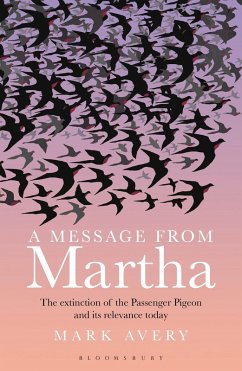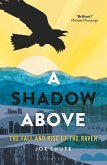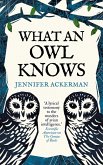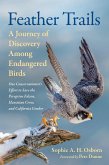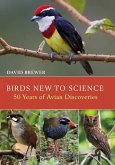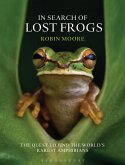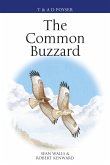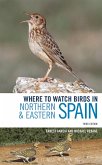The story of Passenger Pigeon, and what we can learn from its demise 100 years ago.
September 1st, 2014 marked the centenary of one of the best-documented extinctions in history - the demise of the Passenger Pigeon. From being the commonest bird on the planet 50 years earlier, the species became extinct on that fateful day, with the death in Cincinnati Zoo of Martha - the last of her kind.
This book tells the tale of the Passenger Pigeon, and of Martha, and of author Mark Avery's journey in search of them. It looks at how the species was a cornerstone of the now much-diminished ecology of the eastern United States, and how the species went from a population that numbered in the billions to nil in a terrifyingly brief period of time. It also explores the largely untold story of the ecological annihilation of this part of America in the latter half of the 19th century, a time that saw an unprecedented loss of natural beauty and richness as forests were felled and the prairies were ploughed, with wildlife slaughtered more or less indiscriminately.
Despite the underlying theme of loss, this book is more than another depressing tale of human greed and ecological stupidity. It contains an underlying message - that we need to re-forge our relationship with the natural world on which we depend, and plan a more sustainable future. Otherwise more species will go the way of the Passenger Pigeon. We should listen to the message from Martha.
September 1st, 2014 marked the centenary of one of the best-documented extinctions in history - the demise of the Passenger Pigeon. From being the commonest bird on the planet 50 years earlier, the species became extinct on that fateful day, with the death in Cincinnati Zoo of Martha - the last of her kind.
This book tells the tale of the Passenger Pigeon, and of Martha, and of author Mark Avery's journey in search of them. It looks at how the species was a cornerstone of the now much-diminished ecology of the eastern United States, and how the species went from a population that numbered in the billions to nil in a terrifyingly brief period of time. It also explores the largely untold story of the ecological annihilation of this part of America in the latter half of the 19th century, a time that saw an unprecedented loss of natural beauty and richness as forests were felled and the prairies were ploughed, with wildlife slaughtered more or less indiscriminately.
Despite the underlying theme of loss, this book is more than another depressing tale of human greed and ecological stupidity. It contains an underlying message - that we need to re-forge our relationship with the natural world on which we depend, and plan a more sustainable future. Otherwise more species will go the way of the Passenger Pigeon. We should listen to the message from Martha.

